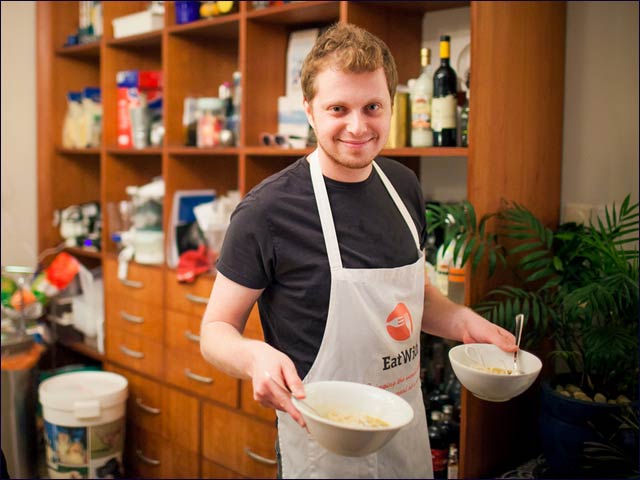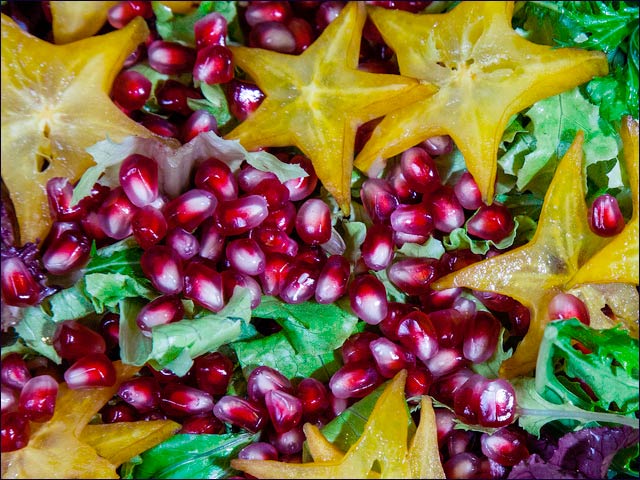By Sarah Carnvek
Tourist-oriented restaurants will promise they're serving "authentic" and "traditional" cuisine. But to get a real taste of what the locals are eating, it's best to dine with them.
But how do you get yourself invited to a home-cooked meal in a foreign country? Two Israeli startups – EatWith and HomeDine – have built global communities of foodies wanting to share their fare with travelers.
"When you travel, food and people are a huge part of experiencing the new place," says EatWith founder Guy Michlin.
"When you think about it, as a tourist, you hardly have a chance to meet locals. No local will sit down with you or give you a peek into society and culture. This trend sees people actually opening their home, bringing you to their private place and having an authentic and bonding experience. Once this thing is global, it will be an integral part of the way to travel."
Sharing a table with locals and other travelers is one of the best experiences someone can have, says Alex Kane, marketing officer at HomeDine.
"We want to offer that chance for people to go somewhere and learn about culture and food from real people," says Kane. "One day we hope the world can come together over the dinner table once again. To meet new friends, new lovers, new business partners and break down some of the digital walls we have put up. Becoming one society through our love of food."
Culinary social adventures
Online communities cover just about every facet of life. There are peer-to-peer apartment rentals, couch-surfing, car rides, and now, sharing a meal.
"People are inherently social eaters, making social media and food a perfect pair," says a report on this phenomenon.
Michlin, together with his friend and co-founder Shemer Schwarz – formerly of XIV Information Systems, which was sold to IBM – officially launched EatWith in 2012. The Tel Aviv-based startup raised $1.2 million in a funding round last summer, and created a worldwide buzz upon going live.
HomeDine also launched in Israel in 2012.
Both startups serve as the initial meeting place for hungry travelers and creative home-chefs, and claim to check potential hosts to make sure their cooking is up to par and their homes are suitable to host. Once accepted into the HomeDine or EatWith community, they're given a profile and get to decide what to cook and how many to host whenever it suits them.

Local hosts are eager to cook for travelers.
Photo courtesy of EatWith
Travelers can log on to the websites, search for a meal in a specific location and apply for a seat at the table.
"It's a way of making new friends," says Michlin. "I know of one couple who met at an Israeli dinner event and they've been together for 10 months. Other times I've seen people go out for drinks together after the meal was over. People from all over the world come together. It brings people closer."
"Unlike in a restaurant where you are solely ranking the food, in a HomeDine you are invited into someone's home to experience and explore all the loving care that goes into a meal," says Kane.
Some hosts offer free meals while others charge premium rates for a gourmet dinner. The average meal fee is about $25. EatWith takes a 15 percent cut of each transaction while HomeDine charges hosts 10%.
Both startups stress that the idea of sharing a meal overrides the business aspect. “It isn’t just about food, but about connecting people," HomeDine CEO Sagiv Ofek told Hebrew media. "For this reason, we are very supportive of free meals.”
From Israel to the world
Israel is both a breeding ground for new startups and one of the world's prime travel destinations. So it makes sense that both HomeDine and EatWith would start here.
Within six months of launching the concept, Michlin says he fielded requests from over 86 countries to create their own food communities. EatWith started operations in Israel and Spain, and quickly expanded throughout Europe and South America. In August 2013, it brought its concept to the US with an official launch party in New York City.
Ofek, a programmer and entrepreneur, decided to move the company's headquarters to San Francisco in May 2013 to achieve a more global presence. The company still has a Herzliya office as well.
"HomeDine moved to San Francisco to be part of the dotcom scene," says Kane. It recently launched an iPhone app and is working on an Android version. EatWith is working on a mobile application for its service as well.
Log on to either site and some examples of meals waiting for guests to arrive include a traditional Jordanian meal (free of charge) in Riyadh; Spanish paella ($51) in San Francisco; and a vegan feast ($33) in Kfar Vradim in Israel.
 Ready to try some new dishes at a new friend’s house?
Ready to try some new dishes at a new friend’s house?
Photo courtesy of EatWith "Eating new and different foods is an important part of any learning experience when traveling," according to the CrazyDog Travel Guide. "Explore a little and you may find some delicious and exciting new tastes."
"This is the cool and new thing to do," sums up EatWith's Michlin.